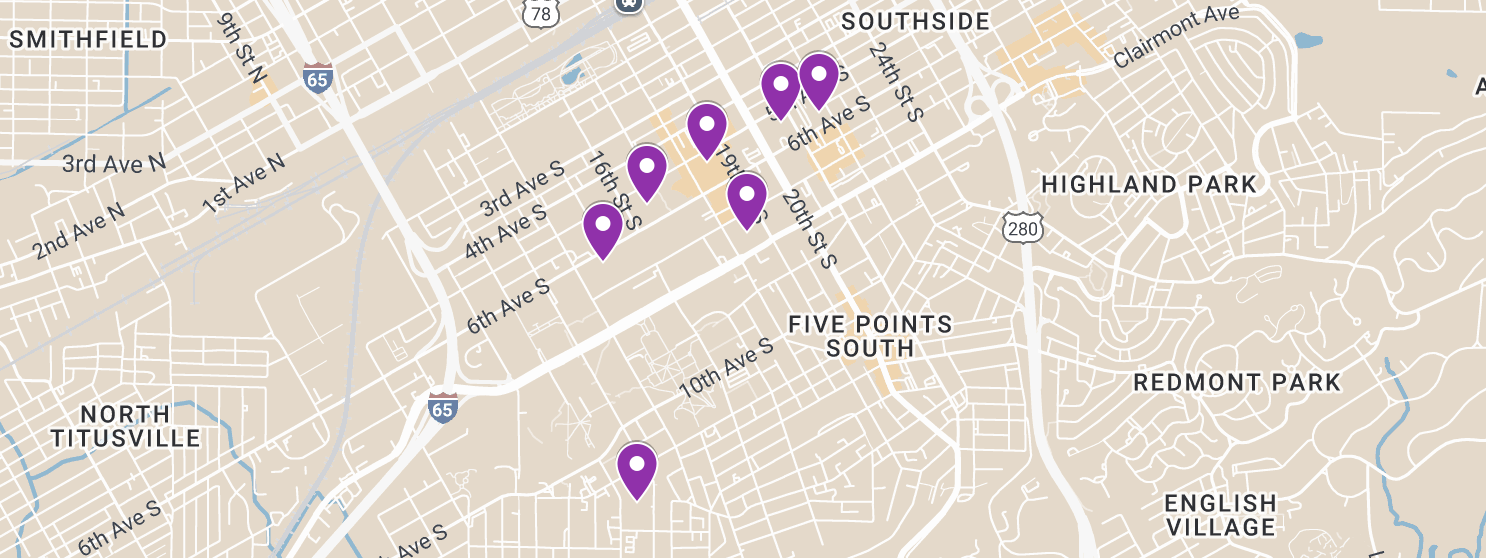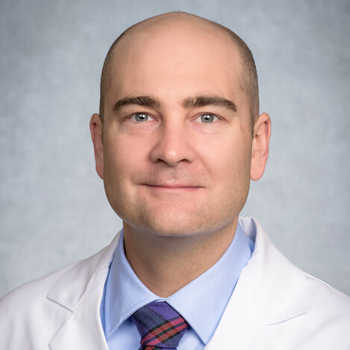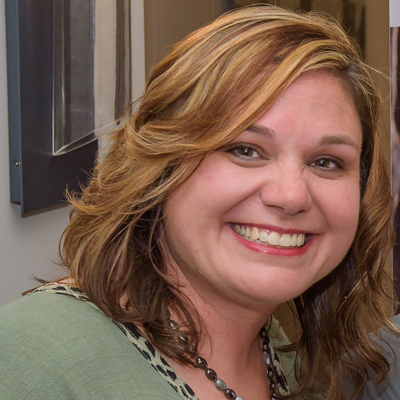In our comprehensive two- to three-year fellowship program, you will receive a broad range of hands-on clinical experience and individualized instruction from nationally known physicians and investigators in a collegial environment.
Fellowship Experience
Our program provides superior nephrology training in a collaborative environment. We have specialty clinics across our medical campus, which is anchored by our 1,200 bed inpatient center UAB Hospital—the eighth largest public hospital in the nation. The hospital is in close proximity to the Birmingham VA Medical Center, UAB Hospital Highlands campus, The Kirklin Clinic, and Children's Hospital of Alabama where fellows also train.
Patients come from all over the state to take advantage of our life-changing care, offering a diverse population and breadth of clinical learning opportunities. We approach medicine in a multi-disciplinary modality across a broad variety of nephrology-related conditions through mandatory and elective rotations. We accept applications through the Electronic Residency Application Service.
Clinical Rotations
 UAB is a highly walkable campus, making it easy to navigate your clinical rotations. Many of our clinical training sites are connected by skybridges, offering protection from rain, heat, and traffic. Browse these buildings to learn more about the types of training conducted there.
UAB is a highly walkable campus, making it easy to navigate your clinical rotations. Many of our clinical training sites are connected by skybridges, offering protection from rain, heat, and traffic. Browse these buildings to learn more about the types of training conducted there.
Explore our training sitesOpens an external link.
We offer our fellows a unique opportunity to customize their curriculum by incorporating various subspecialty clinics that align with their special interests, broaden their clinical exposure, and achieve their career goals. Working one-on-one with various faculty members in different subspecialties provides a strong foundation and builds confidence in the treatment of all nephrology diseases. In addition to our clinical nephrology inpatient consult service, fellows will rotate through our multidisciplinary acute, chronic, cardio-pulmonary critical care, transplant evaluation clinic and kidney biopsy consult services giving our trainees exposure to a wide variety of nephrology diseases, enabling them to experience an enriched and broad patient population.
A two-year fellowship satisfies the requirements for application to ABIM subspecialty certification in nephrology, however, a three-year fellowship is available for persons interested in clinical or bench research and a career in academic medicine. Third-year fellow tracks also include interventional nephrology, critical care, and transplant nephrology.
Elective rotations include clinical or basic science research (paired with a mentor), transplant wards, home dialysis modalities, interventional nephrology, renal pathology, pediatric nephrology, plasmapheresis, specialty clinics (rare genetic clinic, hypertension clinic, glomerular disease clinic, cystic kidney disease clinic), outside elective, and fellow’s choice.
Teaching Conferences
Our training program offers fellows ample teaching opportunities. They are responsible for training residents and rotating students, leading the consult service, and discussing cases with them daily. Fellows are required to present cases at conferences and deliver lectures to medical students on nephrology topics.
The Nephrology Research & Training Center (NRTC) Conference, the Renal Pathology Conference, and the Medical Grand Rounds are weekly opportunities for our faculty, fellows, and staff to hear from experts in a multitude of fields both within and outside of UAB. Topics vary from ongoing research projects to clinical vignettes with discussion of the nephrology disease process.
All conferences are open to faculty, fellows, residents, students and staff, and are held in a hybrid format with the option to attend in-person or virtual via Zoom.
Research Opportunities
Research is an essential part of our training program. Our fellows are required to find a mentor during the first four months and begin working on their projects during their first year. This time is spent meeting with the associate program director for research to discuss research opportunities, followed by meetings with selected faculty members offering long-term projects of interest to the fellow. Research time increases significantly during the second and third years of training, with fellows expected to dedicate approximately 75% of their second year and 90% of their third year to research projects. Those resubmitting proposals receive 65% protected research time in the second year.
Research may be in clinical or basic science projects depending on fellow interests. By the end of the second year of training, our fellows are expected to prepare their research findings and submit them for publication. Presentation of their research findings at regional or national scientific meetings is strongly encouraged.
Let's get acquainted
It's not just what you learn. It's also about the people you learn with. Our fellowship program leaders are dedicated to developing the potential of every talented trainee.
Meet our people
Frequently Asked Questions
-
What will you need to apply?
All applications are reviewed via Electronic Residency Application Service® (ERAS), Code: 1007148F0 which requires the following documents:
-
Current CV (updated within 3 months)
-
Medical School Transcripts (and diploma if requested)
-
Medical School Dean’s Letter
-
Three (3) total Letters of Recommendation (including former program directors)
-
Certificate/verification from previous residency training
-
Must be eligible for Alabama Medical License and Alabama Controlled Substance Certificate (all step scores completed at the time of application)
-
Must be eligible for Federal DEA registration
-
Valid ECFMG Certificate (IMG only)
We do not accept any additional documents outside of ERAS submissions.
-
-
Are there work requirements to train at the VA?
UAB fellowship programs are fortunate to partner with the Birmingham Veterans Affairs Health Care System as a part of our training experience.
Am I Eligible Checklist: Please ensure that you meet the eligibility requirements for training at the VA by accessing the “Am I Eligible Checklist.” Failure to be able to rotate at a major teaching location will, in most cases, result in a revocation of an offer to train, termination, or non-renewal of your GME Agreement.
Selective Service Registration: VA policy states that any male U.S. citizen who did not register for selective service before age 26 is not eligible to work at a VA, no exceptions. You can register for selective service or verify that you have already registered for selective service online with the U.S. Selective Service System.
-
What are the current vaccination requirements?
Vaccinations are required based on CDC recommendations for Health Care Workers including routine childhood vaccines, Hepatitis-B, COVID-19 and Influenza, except in the case of an approved exemption.
-
What are the salaries & benefits for fellows?
Our program provides benefits and insurance plans available to all fellows at UAB. You can find the list of salaries and benefits for fellows based on PGY level here.
-
What is the cost of living in Birmingham?
Birmingham offers a vibrant urban lifestyle at a cost that’s approximately 9% below the national average. Trainees enjoy access to thriving neighborhoods, a nationally recognized food scene, and a dynamic creative community.
-
Is there a minimum USMLE score required?
There is no minimum USMLE score requirement. We take the score into account as part of the overall review of an application.
-
What are the key program dates for Applications?
Applications Open and Close — June through May: Apply through ERAS
Applications Reviewed — July, must be available by August 1
Interview Invitations Released — last week in August
Interviews Begin — September and continue through October
Match Day — November
Fellowship begins — July 1
-
Do you sponsor H1B or J1 Visas?
Yes, the division can sponsor these Visas.
Got more questions? Reach out and let's talk.
We'd be delighted to talk with you about the many exciting possibilities that await you at UAB. Contact us for more details about the clinical nephrology fellowship.
 Eric Judd, MD, Program Director
Eric Judd, MD, Program Director
Send an Email
 Jessica Hargrove, Program Coordinator II
Jessica Hargrove, Program Coordinator II
Send an Email